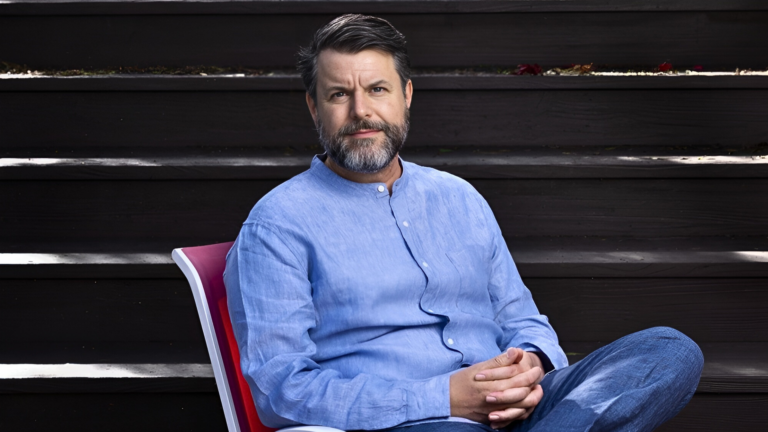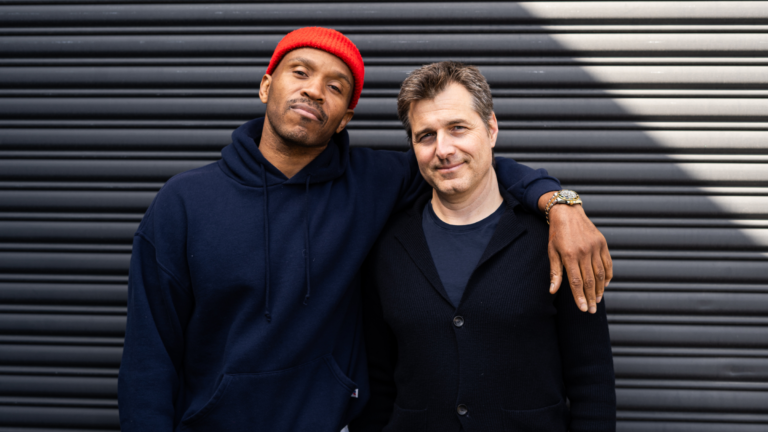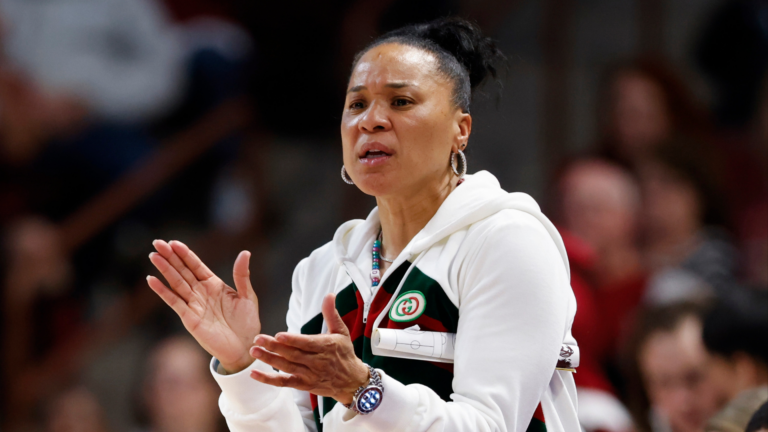This week’s conversation is with Dr. Marc Brackett, the founding director of the Yale Center for Emotional Intelligence and a professor in the Child Study Center at Yale University.
Marc’s research focuses on the role of emotional intelligence in learning, decision making, creativity, relationships, health, and performance.
Over his extensive career, Marc has developed a systemic, evidence-based approach to social & emotional learning that has been adopted by thousands of schools across the United States and in 27 other countries.
Outside of the school setting, Marc also regularly consults with world-leading corporations on integrating emotional intelligence principles into leadership teams and employee training programs to help boost retention, innovation, and ROI.
While emotions are a central part of well-being and high performance, it’s clear that many of us struggle with this part of the human experience – and that’s exactly why I wanted to sit down with Marc for this conversation.
We discuss Marc’s approach to unlocking the power of emotional intelligence – in all environments – in order to help our kids, ourselves, and our communities thrive.
“Whether it be in a school or a family or in a workplace, it’s really our moral obligation to take how other people feel seriously. Emotions are the drivers of our attention, our learning, our decisions, our relationships, our health, and our performance.”
In This Episode:
The impetus for his book, Permission to Feel
I wrote my book because I think we are in a society that is really afraid of feelings. And I think the pandemic taught us that even more so than ever before. So Permission To Feel and the title came from my own personal experiences, kind of two experiences really. One is I hated my childhood. I had a really unsafe childhood. I was abused as a kid. I had two parents who loved me dearly. But in the spirit of our new relationship, my mother had just terrible anxiety and was always having a nervous breakdown. And my father was a stereotypical tough guy from the Bronx who, “Son got to toughen up. You got to toughen up son.” And I’ll just say, when you have a mom who’s having a breakdown every day and a father who’s telling you to toughen up, you don’t just come home after being bullied or abused and say, “Can I talk to you about my feelings?” What do you, you eat your feelings, you suppress your feelings, you act out your feelings. And so that’s what I lived with for most of my childhood until I was around 11.
Emotional education and its downstream effect
As you grow as a person, the way you see your life, and the way you see your childhood, grows. And I know deep in my heart that my parents did the best they could. My parents didn’t have an emotion education, they were raised by wolves. How the heck would they know how to read my emotions accurately and understand the causes of my feelings and have research based strategies to help me regulate my feelings… With that said, would I have preferred to have emotionally intelligent parents? Yeah. Do I hope that the next generation of parents be better role models. Yeah. I was abused from when I was five to 10, which is a long freaking time to be in a situation like that. And I still to this day wonder, why would you return to an abuser? How is that even possible? And I don’t have the answers to it. And I’ve decided that my life’s journey is not to figure out that five year old kid’s mentality. My job is to transform a society to help prevent those things from happening again.
People assume they know what EQ is
My work in the corporate world has always been the most eye-opening for me because it’s people who see themselves as successful because they have the corner office on the Hudson and they’re a big hedge fund and they think, “I’ll tell you what emotional intelligence is, Marc. It’s charisma.” And I’m thinking, “All right, well firstly I don’t think you’ve got it. And secondly, you obviously have not read any of the science.” Because charisma, that’s something different. Not that it’s bad, but it’s just not emotional intelligence.
These are hard skills, not soft ones
The challenge is that the real world thinks that empathy, compassion, and the “soft skills”, which is a term we have to throw away because these are hard skills. Let me tell you, learning how to deal with my feelings is the hardest thing I’ve ever had to learn how to deal with. I know enough maths to count my change in the grocery store and balance my checkbook and I can check my stocks and add up my net worth in five minutes. But my partner comes home and I’m in a bad mood, it is a freaking nightmare. And I know the strategies but I can’t apply them.
We need role models
Here I was, a child being abused. Feelings, I mean tremendous fear and anger and sadness and despair and hopelessness. And I had no outlet for those feelings. There was no place. Where do I go with those feelings? Somehow or another, I perceived my environment as one that was saying, “You can’t talk about this because you’re going to be seen as weak or as asking for it.” Or God knows what the hell was going on in my brain. And so I say that because as a child, adults will talk about it a little bit, but as a kid, parents and teachers and coaches are co-creating your life. I’m just going to say they’re co-constructing your life experiences. And so those can be co-constructed in ways that are unhealthy or healthy. And we need role models. We need people to ask us the question, how are you feeling?
The benefits of emotional intelligence in the workplace
We looked at how people feel. So just to give you an example, there was a 40% difference in daily inspiration based on whether you worked for a supervisor with higher versus lower emotional intelligence. 40% inspiration difference. Frustration, 35 to 40% different. Burnout, 25% different. The intentions to leave your job over the next year, significantly different. Ethical behavior, significantly different. Opportunities to be creative at work, significantly different.
Let’s define empathy, correctly
Empathy at its heart is understanding another person’s experiences. Some people say that walking in the other person’s shoes. I did an interview yesterday for something else and I didn’t know what they were going to be asking me either. And the whole thing was about shame. I’m like, “Oh my goodness, this is on 45 minutes. I’m just talking about times that I felt shame in my life, really?” And so our life experiences might be different. I had my abuse, you had your life experiences. We may not have the same life experiences, but we may share the shame or share the sadness. That’s empathy.
Now, compassion (there’s a difference)
Compassion is different because compassion is more action oriented. The compassion says, “Marc, talk to that person. Figure out what they need, support them.” And I want to say something else because you want to talk about the skills. I think that we actually spend a little too much time on the empathy piece, not enough on the compassion piece. But on top of that, we don’t actually understand that emotional intelligence is a critical skill. Because firstly, to be empathic, you got to read people’s emotions accurately. You got to really know how the person is feeling, otherwise you might make a lot of mistakes. And the second is that when I hear what you’re going through, empathy is not going to take it to the next level. The next level is having this skill to unpack your experience and then help you with strategies to regulate and move in a different direction or just understand your situation better.
RULER
RULER is an acronym that describes the skills of emotional intelligence. And the first R stands for recognizing emotions. So paying attention to your own and other people’s emotions. We do that by turning inward. U is understanding. Understanding the causes and the consequences of our feeling states. So when I’m in a certain mood, how does it affect the way my brain operates, the way I see the world, the way I process information, the way I make decisions? The L is labeling. You have to label it to regulate it. The strategies that you would choose to use to manage different feelings are completely different. Then we have expressing and regulating emotion. That’s the ‘ER’ of RULER. So expressing emotions, knowing how and when to share emotions, express those emotions with different people across context in different culture. The rules for expression are different and Wall Street than they are in Korea. The final R of RULER is the big one, is regulation. Those strategies that we use to deal with the difficult emotions, to be inspiring at a team meeting, to help co-regulate a colleague’s stress or anxiety or fear.
Different ways to regulate different emotions
Everybody in the corporate sector is doing breathing exercises. And God, I love breathing exercises. I can do them all day long, but breathing has not changed the anger I’ve had towards my partner over the last three days. I can’t breathe it away. Not really. I’m going to have to learn how to either change my thinking about my husband or have the difficult conversation and work through the problem. And I find most places want quick fixes. It’s like, let’s just do mindfulness. Everybody’s going to do yoga. I’ve been doing yoga for 20 years. I can do handstands, I can do all these poses, crows into handstands, but it might just be an escape route from dealing with my feelings… I love breathing exercises. They do help you to deactivate. They can help with many other systems in terms of your physical health, but that only works for certain emotions. Sometimes when you’re feeling jealousy or envy, you have to work through it. That’s more complex.
Be an emotion scientist
Live your life as an emotion scientist. So you’re really listening to the way people describe things. You’re really listening to the way people respond and to things and watching how they respond to things. And you pick up pretty quickly. I mean, at least I think I’m pretty good at it in terms of the way people talk about themselves, the way they talk about their work, the way they talk about, how many times they use the ‘I’ versus the ‘me’ or the ‘we’. Those are really helpful. The ‘our’ versus the ‘my’, and those are good indicators, I think. I don’t know about you, but I’ve worked with some people like that. And it’s really hard. And it’s not just the narcissist, it’s also the gaslighters, the people who are manipulative and try to define your reality for you. I had a lot of that growing up. Like, “Marc, you’re so sensitive.” As if that’s a bad thing. And you know you start second guessing, “Gosh, maybe I should change who I am because they think I should be this way.” I think it happens a lot in the workplace. And it happens for fear for people who want, they want, in academia, it’s about I got to be the one on the top. I’ve got to have the best book, the best study in the workplace. I got to have the best clients and have the largest amount of sales. Yeah. This is hard stuff buddy.
Questions to ask yourself
Are you engaging in empathy for your own life experiences? Are you being compassionate to yourself? Are you being nonjudgmental? And then I’m going to jump to being the emotion scientist, right? Are you the curious explorer? Are you, as I called the emotion judge, right? Critical, closed, ignoring emotion. When you fail, what is the story you tell yourself? Is it, “I’m a loser, I’m never going to get good at this. I’m neurotic and that means that my life is always going to be tumultuous.” Or is it, “I’m neurotic and that’s going to give me more opportunities to try all these great strategies to learn how to deal with my feelings.” A different mindset. And then there’s the skills, the R-U-L-E-R, asking yourself, do I really know how that person feels or should I find out? Do I know why they’re feeling the way they’re feeling? Am I using the right words? Am I a role model for healthy expression? Am I using strategies that are helpful to deal with my feelings or unhelpful?
How we really feel needs to be talked about (and taken more seriously)
The world’s chaos is worsening, which depresses me. And I’ve just come to the conclusion that whether it be in a school or a family or in a workplace, it’s really our moral obligation to take how other people feel seriously and because emotions are the drivers of our attention, our learning, our decisions, our relationships, our health, our performance. And so what my biggest hope for is that all of your listeners will realize that the first step is for them to be the best possible role models.


